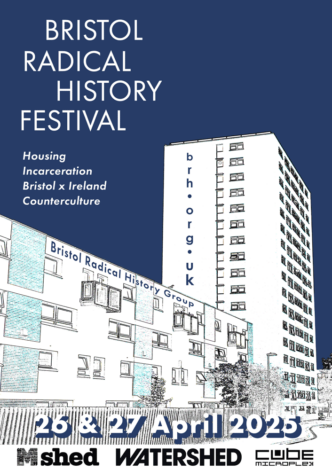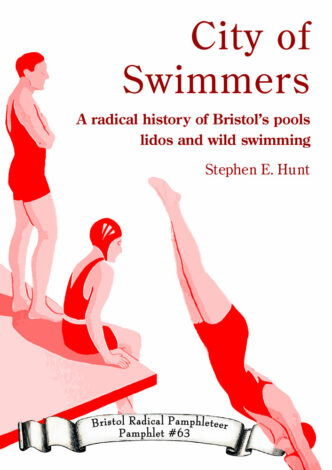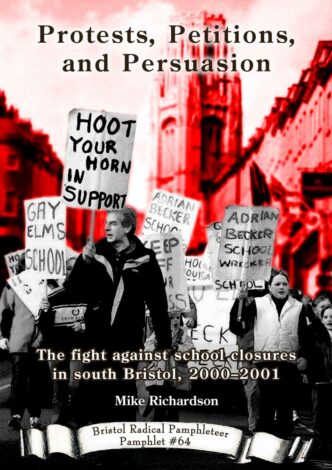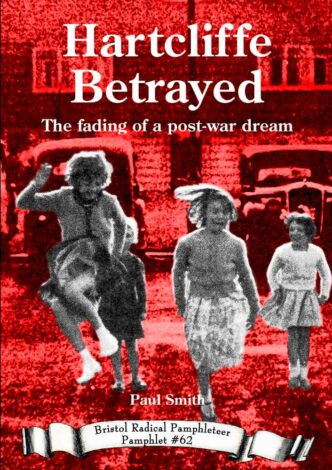Join our historians in the Bristol Archives Education Room to view original maps and documents from the special collections. We have materials on the three of the themes at the Bristol Radical History Festival: Incarceration: The plans for Bristol gaols in the eighteenth and nineteenth centuries, including those that were never built, giving a fascinating insight into prison design and purpose in the period. Prof. Steve Poole will guide us through so-called 'the fitting receptacles of the […]
In conversation with Silu Pascoe, members of the 'Windrush Generation' share memories and experiences of how they overcame racial discrimination when finding somewhere to live in Bristol. In particular, Joyce Morris-Wisdom recalls the 'pardner-hand' system that enabled her parents to become home-owners. Guy Bailey OBE outlines the setting up United Housing Association which was the first Black-led housing association in 1980s Bristol.
Stefan Szczelkun will read from his book Plotlands of Shepperton - a unique artist’s book on a massively under-researched area of the history of housing, soon to be re-released in large format. Szczelkun's commentary on Britain's plotlands reveals the houses to be haunted by their radical history. Do they contain a key to the ‘housing problem’ that the establishment dare not countenance? Following his reading, Stefan will discuss this and more in conversation with BRHG's Paul Smith.
Paul Smith’s talk will draw on his research into the history of Hartcliffe, designed by planners in the 1940s on the garden city model, built as a housing estate in the 1950s. This tale of the steady removal of planned facilities and the reduction in the quality of homes presented huge challenges to a community of ‘pioneers’ exported to the outskirts of the city. The story of Hartcliffe was repeated across the country as estates were built on the edges of towns and cities. This story has […]
High-rise housing has been held up in the mainstream media as the tombstone of welfare state: a symbol of the failure of state-led reform. But does this map onto residential opinion on the ground – or, more accurately, up in the air? Based on years of historical research of grassroots struggles on a range of estates, this talk explores how multi-storey housing served as a crucible for the welfare state’s reimagination. It illustrates the resilience of investments in public housing: throughout […]
Steve Hunt, author of Bristol Radical History Group book, Yesterday’s To-morrow: Bristol’s Garden Suburbs, will tour us through the principles and practical impact of the garden-city movement in our city. The 1918 Tudor Walters Report came with the well-known aspiration to build “homes fit for heroes” after the First World War. The interwar council housing boom that followed shaped much of the development of Bristol as we know it today. It aimed to create new neighbourhoods based on high-quality […]
John Boughton’s talk will cover the early history of public housing from the almshouses and parish housing of pre-industrial times to the council housing of the interwar period. As the Industrial Revolution came to transform Britain’s economy and society and democratic forces grew, Victorian elites came slowly to accept the inevitability of state intervention in housing. John will discuss the forces that shaped council housing in the later nineteenth century and the ideals motivating housing […]
In the 1930s, the Bristol Baths Committee announced its aspiration “Every Bristolian a swimmer”, setting a target that every home should have a swimming facility within a mile. City of Swimmers is a verrucas-and-all history of swimming in Bristol, from the eighteenth-century Rennison’s Baths in Montpelier to the beautiful historic Jacob’s Wells and Bristol South baths, and the mostly overlooked pools in more recent leisure centres. Readers may have memories of a world of award patches, metal […]
Anatomy of a campaign At the beginning of this century, residents of Hartcliffe and Withywood in Bristol were shocked to hear that the city council planned to close two of their local primary schools. Children, parents and teachers, including Mike Richardson, the author of this pamphlet, mobilised to oppose these closures. The ensuing campaign organised public meetings, wrote petitions and held demonstrations in the city centre, as well as adopting some less orthodox direct action in their […]
How a garden city became a housing estate, 1943-1963. A salutary lesson for current planners can be drawn from this detailed examination of the failure of an ambitious project in the immediate post-war environment to live up to its expectations. Houses were desperately needed: What principles should underpin a new ‘settlement’? Where should the houses go? Who were they for? And what provision should be made for the likely political and financial changes over the timescale of the project? […]



